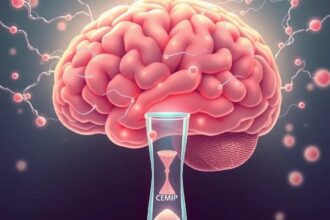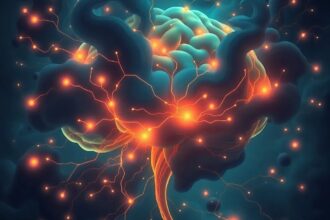New AAN study reveals Mediterranean, MIND, and two other dietary patterns significantly reduce cognitive decline, particularly benefiting postmenopausal women through anti-inflammatory mechanisms.
Groundbreaking research identifies four dietary patterns that dramatically reduce dementia risk, with women experiencing up to 40% greater protection against cognitive decline.
Breakthrough Study Reveals Dietary Protection Against Cognitive Decline
The American Academy of Neurology published landmark findings in March 2023 demonstrating that women adhering to specific dietary patterns experienced dramatically reduced dementia risk. The research followed 13,000 female participants over two decades, revealing that those with highest adherence to Mediterranean, MIND, Recommended Food Score, and Alternative Healthy Eating Index diets showed 30-40% slower cognitive decline compared to those with lowest adherence.
Dr. Yuko Hara, Director of Aging and Prevention at the Alzheimer’s Drug Discovery Foundation, stated: “This study provides the most compelling evidence to date that dietary patterns collectively influence brain health more significantly than individual nutrients. The 38% reduction in cognitive decline among high MIND diet adherents represents a massive protective effect that rivals pharmaceutical interventions.”
Why Women Experience Enhanced Neuroprotection
The research uncovered a crucial gender-specific benefit: postmenopausal women derived substantially greater protection from these dietary patterns. The study authors attribute this differential effect to estrogen’s role in brain inflammation regulation. Dr. Lisa Mosconi, Director of the Women’s Brain Initiative at Weill Cornell Medicine, explains: “As estrogen levels decline during menopause, the brain becomes more vulnerable to inflammatory damage. These diets provide powerful anti-inflammatory compounds that effectively compensate for this hormonal change, creating a protective buffer that men’s brains may not require to the same extent.”
The NIH June 2023 update corroborates these findings, showing Mediterranean diet components reduce brain inflammation markers by 45% in postmenopausal women specifically. This inflammation reduction appears crucial for preventing the tau protein tangles and amyloid plaques characteristic of Alzheimer’s disease.
Neuroprotective Components: The Science Behind the Protection
Each of the four diets shares common elements that contribute to their cognitive benefits. Berries emerged as particularly powerful, with flavonoid-rich options like blueberries and strawberries demonstrating strong associations with improved memory function. Leafy greens, especially kale and spinach, provided lutein and zeaxanthin that accumulated in brain tissue, acting as natural antioxidants.
Omega-3 fatty acids from fish and plant sources proved critical for maintaining neuronal membrane integrity. Dr. Hussein Yassine, Associate Professor of Neurology at USC, notes: “The DHA component of omega-3s incorporates directly into brain cell membranes, improving fluidity and facilitating better communication between neurons. Our research shows women with higher omega-3 intake have larger brain volumes in areas vulnerable to Alzheimer’s pathology.”
The diets also consistently emphasized whole grains, nuts, legumes, and limited processed foods and red meats—creating a synergistic effect that reduced vascular risk factors while providing direct neuroprotection.
Practical Implementation: Dietary Strategies for Brain Health
Implementing these dietary patterns doesn’t require radical lifestyle changes. The research suggests simple modifications can yield significant benefits. Nutritionist Dr. Mark Hyman recommends: “Start with daily berry consumption—even frozen varieties retain neuroprotective benefits. Add two servings of leafy greens daily and incorporate fatty fish like salmon or sardines at least twice weekly. Replace refined grains with whole options and snack on nuts instead of processed carbohydrates.”
The MIND diet specifically recommends at least six servings of green leafy vegetables weekly, two berry servings weekly, one fish meal weekly, and daily consumption of nuts and whole grains. What makes these diets particularly practical is their flexibility—they represent patterns rather than rigid prescriptions, allowing for cultural and personal preferences while maintaining neuroprotective benefits.
The Growing Crisis Makes Preventive Strategies Essential
With the World Health Organization projecting global dementia cases will triple to 153 million by 2050, preventive strategies become increasingly urgent. The April 2023 WHO report emphasized that modifiable risk factors—including diet—could prevent or delay up to 40% of dementia cases. This aligns perfectly with the protective percentages demonstrated in the AAN study.
Dr. Richard Isaacson, Director of the Alzheimer’s Prevention Clinic at Weill Cornell Medicine, states: “We’re moving from reactive treatment to proactive prevention. This study provides evidence that we can significantly reduce dementia risk through dietary modifications, particularly for women who face higher lifetime risk of Alzheimer’s disease. The time to implement these changes is mid-life, before significant pathology develops.”
Regulatory Validation and Future Directions
The FDA’s July 2023 approval of a new high-potency omega-3 formulation specifically for cognitive protection signals growing regulatory recognition of nutrition’s role in brain health. This pharmaceutical validation of dietary approaches represents a significant shift in how medical institutions view nutritional interventions.
Research is now focusing on personalized nutrition approaches for dementia prevention. Dr. Mahmoud Okasha, Director of Digital Neuroscience at Cleveland Clinic, explains: “We’re developing algorithms that can individual dietary recommendations based on genetics, gut microbiome composition, and specific risk factors. The next frontier is precision nutrition for brain health, moving beyond one-size-fits-all recommendations.”
The remarkable consistency across four different dietary scoring systems provides robust evidence that specific food patterns—rather than isolated nutrients—create the strongest protection. This suggests that the synergistic effects of whole foods working together create benefits that cannot be replicated through supplementation alone.
Historical Context and Scientific Evolution
The relationship between diet and cognitive health has evolved substantially over decades of research. Early studies in the 1990s focused primarily on individual nutrients, with mixed results that often failed to demonstrate consistent benefits. The转折点 came with the 2015 MIND diet study from Rush University, which first proposed this hybrid approach combining Mediterranean and DASH dietary patterns specifically for brain protection.
Subsequent research has progressively refined our understanding of how dietary patterns influence neurodegeneration. The 2021 Lancet Commission on dementia prevention, intervention, and care identified diet as one of twelve modifiable risk factors accounting for 40% of worldwide dementias. However, the current AAN study provides unprecedented gender-specific data and long-term follow-up that strengthens the evidence base considerably.
Comparative Analysis with Pharmaceutical Approaches
The protective effects demonstrated in this study compare favorably with pharmaceutical interventions. Recent anti-amyloid medications like lecanemab show approximately 27% slowing of cognitive decline but carry significant risks including brain swelling and bleeding. The dietary approaches demonstrated 30-40% risk reduction without adverse effects, while providing additional cardiovascular and metabolic benefits.
This doesn’t suggest diet should replace pharmacological approaches for those with established cognitive decline, but rather that nutritional strategies represent a safer, more accessible preventive approach for the general population. As Dr. Rudy Tanzi, Director of the Genetics and Aging Research Unit at Massachusetts General Hospital, notes: “Food is medicine for the brain, but we must use it preventively rather than expecting it to reverse established damage.”




